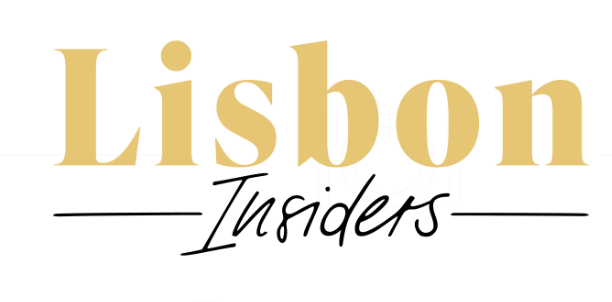- Insiders Profile -
Peter Loy & Peter Propper
Co-Founders
RŪMU
We sat down with RŪMU’s CEO and co-founder, Peter Loy, and art director and co-founder, Peter Propper, who shared their vision for the space, how to blend restaurant and club culture, and what makes their Lisbon concept uniquely alive.
◆ What was the original vision behind RŪMU, and how did it come to life?
Peter Loy: The idea was to create a space that didn’t exist in Lisbon. Something intimate yet international, where dinner flows into nightlife without the usual boundaries. We wanted RŪMU to feel like a hybrid between an izakaya and an intimate club. A place for people who are curious, who want quality, but also want to let go. It came to life the way most good things do: through a lot of obsession with details, endless conversations between the partners, and a sense that Lisbon was ready for a new kind of space.
Peter Propper: I’m just one part of the team behind RŪMU – the one focused on the club, the music, the sound, and the lights. For me, the idea came from two parallel paths converging. On one hand, I've been involved in throwing electronic music parties around the world – helping shape different projects and learning a lot in the process: sound, light, what makes a space work, what builds and what kills the vibe. On the other hand, I've been deep into djing and music production – building studios, understanding the production process and room acoustics from the inside out.
RŪMU was for me a way to bring those experiences together. I wanted a space where everything I'd learned – about sound and lights converging, about how space and sound shape emotion, and where I could translate this into something physical and lasting. Something people could walk into and feel – and something that repeats a lot, so I can tweak it in the same place and witness the results instantly. I aim to create an institution, and based on many artists' feedback, I am confident we're on the right path to achieve that status.
◆ If you had to describe RŪMU in just three words, what would they be?
PL: Intimate, playful, elevated.
PP: Authenticity, quality, inclusivity.
◆ RŪMU is both a club and a restaurant. How do you balance these two identities?
PL: We never really separate them. Dinner here is not just dinner – it’s already part of the night. The sound, the lighting, the pacing of the service – everything is designed to lead you deeper into the evening. When the restaurant shifts into a club, it feels natural, not like two different venues.
◆ What sets RŪMU apart from other nightlife and dining spots in Lisbon?
PL: Lisbon has amazing restaurants and vibrant clubs, but very few places that merge the two with intention. RŪMU is not about volume; it’s about curation. We’re small — we have 60 seated dinner and 250 club capacity – but that’s the strength. People feel part of something that is both premium and underground at the same time. The design, the sound system, the cocktails, the food – it all works together to create one continuous experience.
◆ How do you approach the curation of artists and music programming at RŪMU?
PP: We start with the music. Always. Does it align with how we see our musical identity? Then, does the artist want to really play for the experience and for the room? Are they recommended, and who are they as people? What do they stand for? How do they move through the scene? It's not a popularity contest. We care about the artist's journey and values as much as the sound.
◆ How important are food and dining in shaping the overall RŪMU experience?
PL: It’s fundamental. Food sets the tone. Sharing plates, flavors that are surprising but comforting – it lowers barriers between people. By the time the music takes over, the room is already connected. That’s why we never treat the restaurant as a “pre-club.” It’s the heartbeat of the night.
◆ Lisbon is buzzing with creative projects right now. What role do you want RŪMU to play in this scene?
PL: We want to be a connector. A place where ideas and communities overlap – music people, art people, food people, travelers. RŪMU should be a reference point for creativity, but without losing the fun. At the end of the day, it’s about joy and human connection.
PP: We're not trying to fit in. And that's the point. RŪMU exists a little to the side of things –conceptually, musically, technically. It's not easily comparable. That's something we're proud of. And whatever direction Lisbon goes in, whatever competition arises, we believe RŪMU will always have its place because it's built on a strong acoustic and audiovisual backbone as well as values, not trends.
◆ What have been some of the most memorable nights at RŪMU so far?
PL: The opening night, of course, when we saw months of work finally come alive. But honestly, the most memorable moments are when the energy in the room flips – when dinner guests suddenly find themselves on the dancefloor at 2am, or when an artist takes the room somewhere unexpected, like the night Ohm Hourani played for the first time. Those are the nights that remind me why we built this.
PP: There have been many. And they're different for everyone – it depends on the vibe, the crowd, the music. But when all the elements align – people are there for the music, they've had a great dinner, the sound is locked in – it creates something special. Those nights are hard to forget.
◆ Could you walk us through your ideal day in Lisbon, from a slow morning to a late-night ritual?
PL: My ideal day starts slow but purposeful – I wake up and go straight to the gym for about 45 minutes, a moment to reset both physically and mentally. After that, I love heading to the beach for a swim – it’s my version of meditation. Lunch usually means a simple grilled fish by the sea. On the way back, I’ll often stop by Meeting Tea to grab a few bubble teas for my daughters. As night falls, it’s about connecting – meeting friends, discovering new spots around the city, and, inevitably, ending up at RŪMU… because, honestly, it always ends there.
PP: Mornings often start with school drop-off for my daughter. Then coffee either in Melbourne, Buna, or Liberty, a little bit of work in the sun, either in the cafés or in a park. After that, I usually dive into work from home and jump off to Prescription Pilates. I have now also signed up to aimara studio and am thrilled to try that out once it opens. And when I can, I take my daughter to Estrela Park. Sometimes I go back there at night, just to walk and talk on the phone and journal. It's probably my favorite place in the city. And then of course, dinner and meet the artist at RŪMU, whenever I can.
◆ What’s your favorite local hangout in Lisbon (outside of RŪMU)?
PL: There’s this small hidden room at Bistro 100 Maneiras. It feels like a secret corner of the city where I can have an intimate date with Marie or a fun pre-drinks with a group of friends.
PP: Praça das Flores, or Parque da Estrela. I love being outside as much as possible, working, talking to people, or just soaking up the sun. Being in parks or hanging out on the street is where I spent most of my time in my teenage years, and where I feel the best. I really appreciate Lisbon for being a place where this is so easy to do. As for my favorite coffee/food spot, I keep coming back to Liberty Cafe without a doubt.
Liberty Cafe and Bistro 100 Maneiras





